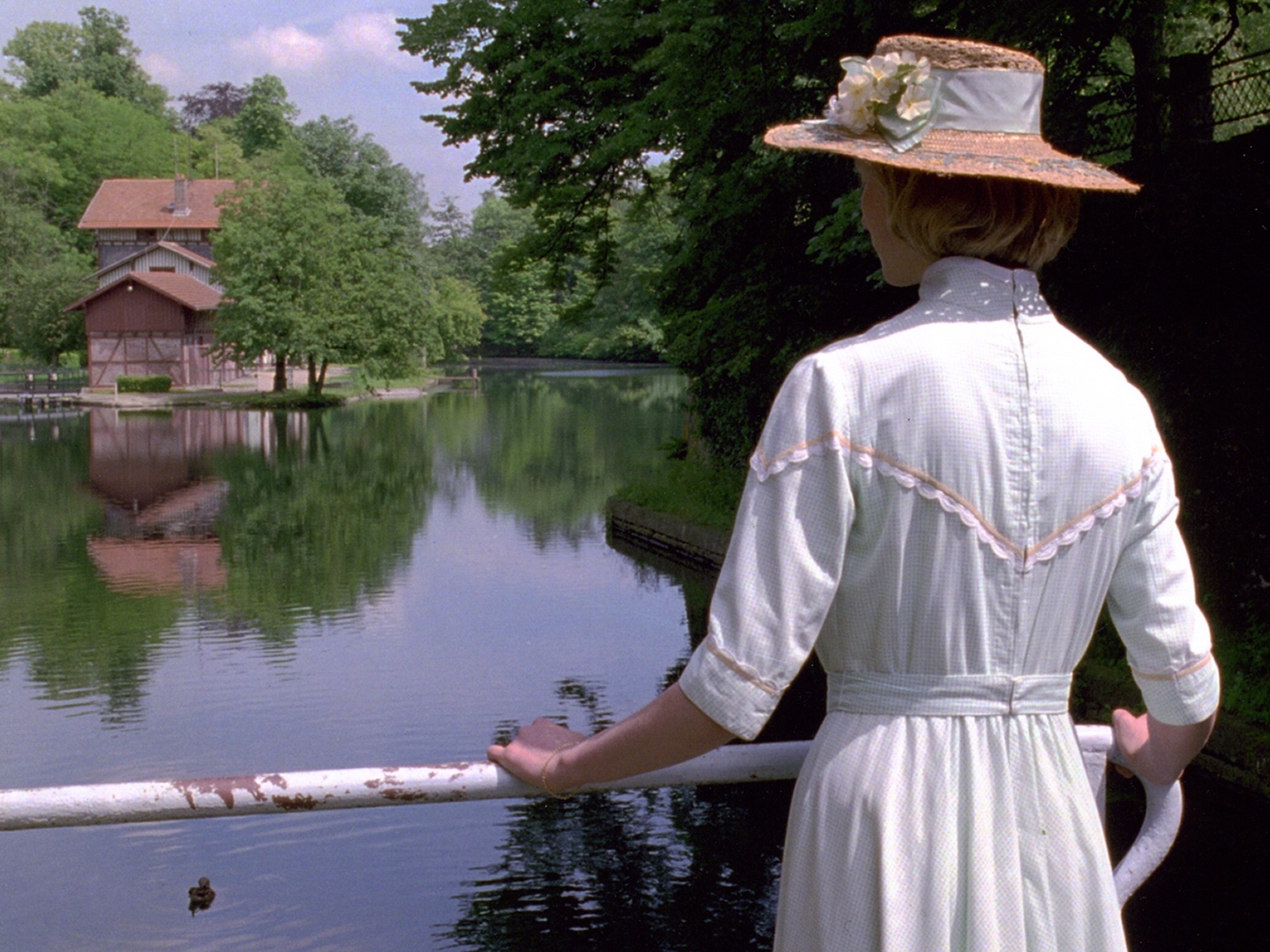
Straub, who was born in Metz, Lorraine, in 1933, once observed, “I like the Alsatians – they are the only French who have as much irony as Corneille.”
In this film, which conjures “a conspiratorial atmosphere of fear and hatred,” Straub and Huillet draw upon a pair of novels by Maurice Barrès, a celebrated Alsatian author, extreme nationalist, crude anti-Semite, and ardent anti-Dreyfusard, to tell tales of perfidy, humiliation, and resistance during the German occupation of Alsace-Lorraine between 1870 and 1918.
EN
“In 2014, twenty years after Huillet & Straub made their short film Lothringen! (1994), I visited Lorraine, or to be precise, Lothringen, which indicates the French territory annexed by the German Empire in 1871. With the help of André Warynski, who had collaborated with Huillet & Straub on Lothringen!, I was able to trace every shooting spot of this film.
The primary purpose of my visit to Lothringen was to confirm my assumption that Huillet & Straub had excluded Protestant churches from every shot of Lothringen!, a film based on an anti-German and anti-Protestant novel, Colette Badouche (1909). In this French novel written by Maurice Barres, a French girl, Colette, refuses to marry a German Protestant, Frédéric Asmus, on the grounds that she was born in a Catholic city, Metz.
Through my field study in Lothringen and Koblenz (a German city where the first shot of Lothringen! was taken), I found out that five churches and one cathedral whose buildings can clearly be seen in this film are all Catholic. However, three Protestant churches were excluded from the shots intentionally by the filmmakers, and another three are barely noticeable. For example, in the last shot of Lothringen!, which was taken at a square of a Catholic church in Scy-Chazelles, a steeple of another Catholic church stands out on the right side of the hat of Colette. In contrast, a Protestant church next to the steeple is hard to notice due to white smoke rising in front of its building. In this way, Huillet & Straub depicted hatred of Colette against the German Empire.
After my field study, I happened to meet Jean-Marie Straub at a restaurant near his residence in Paris. When I asked him about the miraculous smoke in Lothringen!, he smiled and said, "I'm not a smoke maker!"”
Makoto Mochida1

